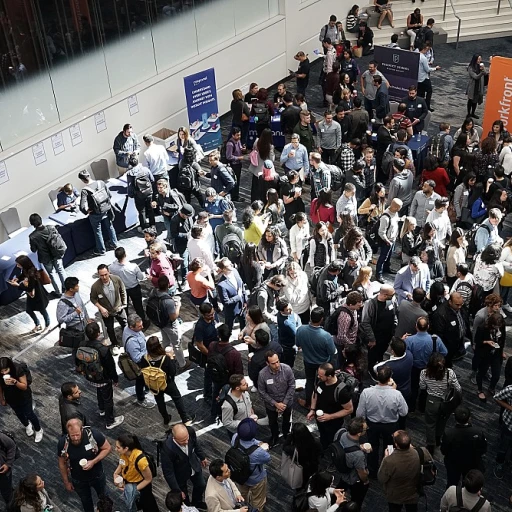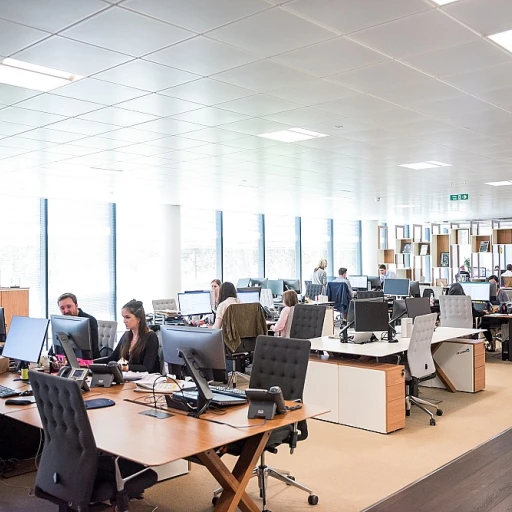
Understanding Commodity Management in the New Zealand Context
Examining Commodity Management Practices in New Zealand
In New Zealand, understanding commodity management is crucial for businesses aiming to thrive in the competitive market landscape. This involves managing the supply and procurement of raw materials, products, and services, while navigating the inherent risks associated with the dynamic commodity markets.
Commodity management is all about strategic sourcing and building a resilient supply chain. It requires collaboration with suppliers to ensure the timely and efficient procurement of goods at the best prices, alongside maintaining quality standards. For companies, the focus is on securing long-term contracts and using market analysis and real-time data to make informed decisions.
Key components of effective commodity management include:
- Strategic sourcing and identifying reliable suppliers.
- Leveraging commodity management systems (CMS) for efficient risk management.
- Utilizing management software to oversee contracts and inventory levels.
Moreover, in the context of improving supply chain efficiency, utilizing tools for purchase order tracking becomes imperative. This approach not only optimizes procurement but also minimizes trading risks and price fluctuations over the long term.
The landscape for commodity managers is constantly evolving, with solutions being tailored to meet New Zealand's unique market challenges. As these practices develop, businesses can gain a competitive edge by aligning their strategies with emerging trends and technologies in commodity trading and management.
Challenges Faced by Office Managers in Commodity Management
Overcoming Hurdles in Office Commodity Management
In the diverse landscape of New Zealand businesses, office managers face unique challenges in handling commodity management effectively. It involves navigating a complex tapestry of dynamic markets, supply chains, and risk factors that can impact the smooth functioning of an organization. Office managers are constantly striving to strike a balance between maintaining high quality standards and optimizing inventory levels, all while ensuring that their products meet the required specifications. The inherent unpredictability associated with commodities like raw materials and essential services adds an additional layer of complexity. This unpredictability necessitates agile decision making to manage trading risk and price volatility. Many New Zealand companies encounter hurdles when ensuring that their supply chain remains robust and resilient. In a market that is heavily influenced by international forces, including the United States, maintaining a reliable supplier network becomes challenging. This is where effective risk management strategies and strategic sourcing become crucial. CMS (Commodity Management Software) can help in mitigating these challenges by providing real time data for better decision making and market analysis. Effective commodity management also involves developing robust procurement strategies that align with long-term company goals. A critical component involves managing contracts prices and adapting to shifts in commodity trading conditions. Understanding the full scope of these challenges and implementing strategic commodity solutions allows office managers in New Zealand to play an instrumental role in sustaining their business's competitive edge. For more insights into enhancing workplace efficiency, you can explore this comprehensive Gemba checklist, which offers practical tools for refining processes within the office management domain.Leveraging Technology for Efficient Commodity Management
Maximizing Efficiency through Cutting-Edge Technology
In today's fast-paced business environment, technology plays a pivotal role in enhancing commodity management processes. As market dynamics evolve, New Zealand companies need to harness innovative solutions to stay competitive and manage their supply chain effectively. Leveraging technology enables businesses to streamline procurement activities, optimize inventory levels, and mitigate trading risk.
Advanced management software stands out as a crucial component for businesses. Real-time data enables commodity managers to make informed decisions, ensuring the company remains agile in adapting to market changes. Monitoring supply and demand trends allows for strategic sourcing, improving procurement strategies and reducing overall costs.
Supply chain solutions that incorporate risk management are integral in dealing with market volatilities. By analyzing market data, businesses can foresee potential disruptions and establish contingency plans. Strategic commodity contracts and pricing models also play a vital role, allowing companies to secure raw materials at competitive rates and maintain quality standards.
Moreover, services such as cloud-based management software facilitate seamless communication between stakeholders and suppliers. This connectivity allows for better commodity trading, ensuring products meet quality benchmarks and market requirements.
For office managers, integrating an efficient sidebar menu within their workflow can further boost their ability to oversee these technological advancements. This setup not only streamlines access to vital information but also facilitates better management of day-to-day activities, reducing manual work and increasing productivity.
Ultimately, leveraging these technological advancements is essential for New Zealand businesses aiming to enhance their commodity management and sustain long-term growth. By investing in cutting-edge tools, companies can optimize their supply chain and capitalize on market opportunities, thus securing a strategic edge in the global marketplace.
Sustainability in Commodity Management
Embracing Sustainability in Commodity Management
As businesses in New Zealand strive to maintain competitiveness, sustainability has become a crucial aspect of commodity management. This involves integrating environmentally responsible practices into every stage of the supply chain. Companies are increasingly recognizing the benefits of sustainable procurement, such as reducing carbon footprints and enhancing brand reputation. Many New Zealand businesses are adopting strategic solutions to ensure that their products not only meet quality standards but are also sourced responsibly. Incorporating sustainability into strategic sourcing decisions can mitigate market and trading risks associated with volatile raw material prices. Utilizing management software that provides real-time data and insights can aid in assessing the environmental impact of various procurement strategies. This empowers commodity managers to make informed decisions that align with the business’s long-term sustainability goals. Additionally, strategic commodity management can incorporate sustainability by prioritizing contracts with suppliers whose practices support environmental conservation. This proactive approach to managing the supply chain results in more resilient businesses that preserve natural resources while ensuring reliable access to high-quality commodities. Ultimately, embracing sustainability in commodity management is not just about risk management or complying with regulations. It is a forward-thinking approach that enhances the overall business strategy and contributes positively to the planet, reinforcing a company's position in the market. By applying sustainable practices, businesses in New Zealand are able to not only navigate current supply chain challenges but also secure a competitive edge in the global marketplace.Case Studies: Successful Commodity Management in New Zealand
Real-World Examples: Effective Commodity Strategies in Action
In the dynamic landscape of commodity management, several New Zealand businesses have successfully implemented strategies that maximize efficiency and mitigate risks. These case studies illuminate the pathways companies have taken, offering a blueprint for others aiming to optimize their supply chain operations.- Strategic Sourcing and Risk Management: A prominent New Zealand company in the food and beverage sector has implemented a comprehensive risk management strategy that focuses on strategic sourcing. By diversifying their supplier base and conducting thorough market analysis, they have minimized price risk associated with raw materials. This approach ensures that their products consistently meet quality standards, even in volatile trading conditions.
- Adoption of Advanced Commodity Management Solutions: One innovative company transitioned to a robust commodity management software system to gain real-time insights into their procurement processes. This shift has enabled them to optimize inventory levels and make strategic decisions swiftly, reducing trading risk and enhancing their overall supply chain resilience.
- Long-Term Contracting for Stability: A key player in the manufacturing sector adopted long-term contracting with suppliers to stabilize contract prices of essential commodities. By locking in prices for critical raw materials, this business effectively shields itself from sudden market fluctuations, ensuring both cost control and supply chain continuity.
- Data-Driven Decision Making: An agricultural company utilized detailed market analysis and data-driven insights to refine their commodity trading strategies. By closely monitoring trends in the commodity market, they have been able to predict changes and adjust their supply chain and procurement plans accordingly, maintaining a competitive edge.
Future Trends in Commodity Management for New Zealand Businesses
Emerging Trends and Developments in Commodity Management
In recent years, New Zealand businesses have experienced a significant shift in how they approach commodity management. This transformation is driven by advances in technology, changes in global markets, and a growing emphasis on sustainability. Staying ahead of these trends is essential for strategic decision-making and maintaining a competitive edge.- Technological Integration: The incorporation of real-time management software allows companies to enhance their supply chain efficiency. Advanced commodity management systems (CMS) are becoming integral, offering solutions in procurement, supplier management, and inventory levels. These systems provide reliable data for market analysis, helping businesses mitigate trading and price risk.
- Focus on Sustainability: The demand for green commodities and sustainable production methods is reshaping market dynamics. Companies are prioritizing products that meet quality standards with an emphasis on long-term environmental impact. New Zealand's commitment to sustainability aligns with global trends, ensuring local businesses can leverage their unique products on the international stage.
- Strategic Sourcing and Risk Management: Businesses are increasingly adopting strategic sourcing practices to navigate fluctuating contracts prices and raw material availability. Strategic commodity management can mitigate risks associated with global trade uncertainties, allowing companies to maintain stable supply chains.
- Global Market Influences: With New Zealand’s trade relationships, particularly with the United States and other key partners, staying informed on international trading trends is crucial. Commodity managers must adapt strategies to address geopolitical shifts and currency fluctuations.













